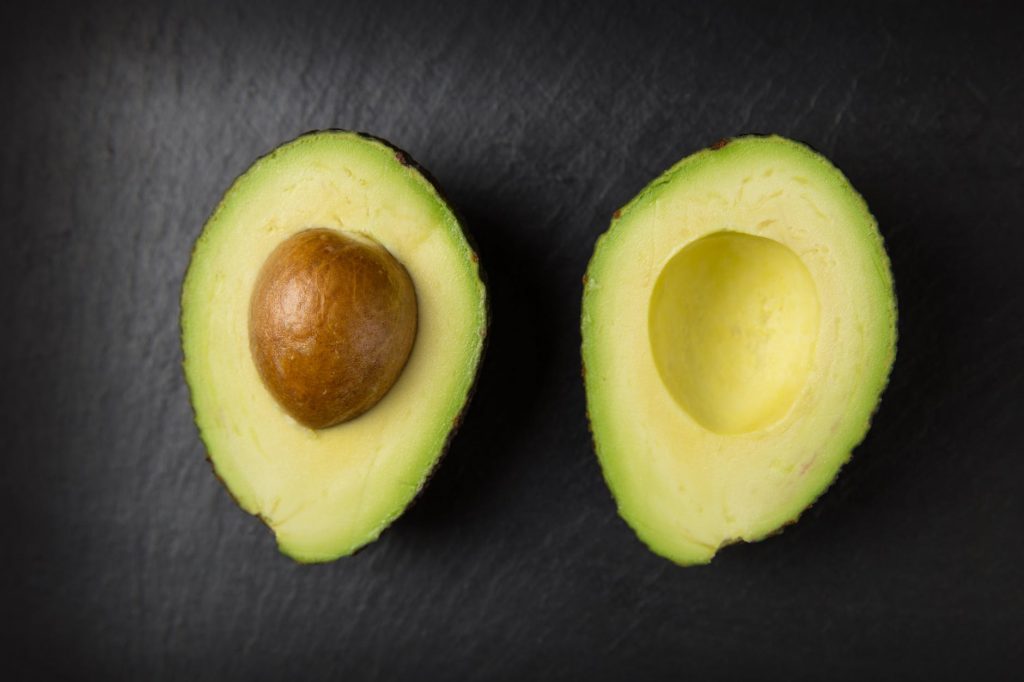
Does the Keto Diet Really Work?
A single diet may not be suitable for all. Your body is different from the next person. A diet that suits your friend may cause more health problems for you, and a change in lifestyle can bring about a lot of changes. We are in a generation where there are a lot of different types of diets – the Paleo diet, the Mediterranean diet, the raw food diet, and more. Of all the different types of diets that people have been following all over the world, one of the most popular is the Keto diet.
What is the Keto diet, and how does it work?
The ketogenic diet, popularly known as Keto diet, is a low-carb, high-fat diet. In this diet, the carbohydrate intake is drastically reduced, and it is replaced with fat – a lot like the Atkins diet. When the carbs intake is reduced, the body goes into a metabolic state called ketosis. Ketosis is a state where the body becomes extremely efficient at burning fat for energy. Ketosis also turns the fat into ketones in the liver that supply energy to the brain.
The four different types of the Keto diet include:
- The Standard Ketogenic Diet is a very low-carb, moderate-protein, and high-fat diet that contains 5 percent carbs, 20 percent protein, and 75 percent fat.
- The Cyclical Ketogenic Diet involves periods of higher-carb refeeds, like two high-carb days after five ketogenic days.
- The Targeted Ketogenic Diet is a diet that adds carbs around workouts.
- The High-Protein Ketogenic Diet is similar to the standard ketogenic diet but with more protein and involves 5 percent carbs, 35 percent protein, and 60 percent fat.
Of the four types, the standard Keto diet is the most popular diet that is followed. Cyclical or targeted ketogenic diets are primarily used by athletes or bodybuilders, as they are more advanced methods.
A question most people ask is: “How does the Keto diet work?” The vital theory behind the Keto diet is that it tricks the body into burning fat for fuel instead of sugar. Our body makes use of blood sugar as the main source of energy that comes from carbohydrates. When you stop consuming carbs, the blood sugar is short in supply. The absence of circulating blood sugar forces the body to breakdown the stored fat into molecules called ketone, and the process is called ketosis. During this process, most cells make use of ketone to generate energy, and thus, aid in weight loss.

What benefits does a Keto diet offer?
Everybody follows a diet for some reason or the other. While some diet to lose weight, others follow a diet to gain some muscles. The purpose is different to everyone, but sometimes, a single diet can offer several benefits, from losing weight in a healthy way, to fighting PCOS and effectively getting rid of acne.
Keto is a diet that focuses on healthy fats, an adequate amount of protein, and very few carbs, in an attempt to get more calories from fat than from carbohydrates. Some of the benefits offered by the Keto diet include the following:
It promotes weight loss.
The Keto diet includes food that fills up a person’s stomach, and in turn, reduces the hunger-stimulating hormones. It helps boost a person’s metabolism and reduces appetite. By reducing the appetite, it promotes weight loss.
It aids getting rid of acne.
Acne has different causes. For some people, it is caused by their diet and blood sugar in the body. A diet that is high in processed and refined carbohydrates alters the balance of gut bacteria in some people and causes blood sugar to rise and fall significantly. Both the rise and fall in blood sugar adversely affect skin health. Keto diet reduces the acne symptoms in some people, as it is low in carbs.
It may reduce the risk of certain cancer.
The diet is considered safe to be used alongside chemotherapy and radiation therapy. It complements in improving the health of people with cancer. The improvement in health is because the diet adds more stress on oxidative stress in cancer cells than in the normal cells, causing them to die. Although studies on this subject are limited, some researchers believe that the Keto diet may help in preventing or even treating certain cancer.
It aids in improving heart health.
Many healthcare providers say that fat is not good for heart health. But did you know that there is fat that is good for health and some bad for health? Fat in avocados is healthy and much better than the fat in pork rinds. Healthy fats reduce cholesterol and improve heart health. The Keto diet helps in controlling cholesterol levels. People following the Keto diet saw a significant drop in low-density lipoprotein, or bad cholesterol, and triglycerides and saw an increase in high-density lipoprotein, or good cholesterol. The effect of the diet on cholesterol, therefore, reduces the risk of a heart condition.
It helps protect the brain function.
Keto diet results in the production of ketones, which are believed to offer neuroprotective benefits. Ketones generated during the Keto diet strengthen and protect the nerve cells and the brain. For this reason, the Keto diet is believed to help a person manage or prevent conditions such as Alzheimer’s disease. However, more research is necessary.
It has the potential to reduce seizures.
The metabolic process during which your body uses ketone for fuel is called ketosis. When you are on a Keto diet, the way the body uses energy that results in ketosis is altered by the ratio of fat, protein, and carbs consumed. Keto diet has the potential to reduce seizures in people with epilepsy. More research is required in this field, but the diet seems to affect children who have focal seizures, especially those patients who have not responded to other treatment methods.
It improves the symptoms of PCOS.
PCOS or polycystic ovary syndrome is a hormonal disorder that leads to ovulatory dysfunction, excess male hormones, and polycystic ovaries. Keto diet improves several markers of PCOS that include weight loss, hormone balance, levels of fasting insulin, and ratios of LH, or the luteinizing hormone, and FSH, or the follicle-stimulating hormone. Though the study is too diverse to include the Keto diet as a treatment for PCOS, it has indeed helped in improving other problems relating to PCOS, such as skin problems and weight gain.

What negative risks are there?
You may have heard that the Keto diet works wonders. The diet has indeed helped a lot of individuals in losing weight and loving themselves more. But the Keto diet is not ‘all good and nothing bad’ diet. It has several potential risks that can affect your health. What are the dangers of the Keto diet?
Like any other diet, the Keto diet has its set of potential dangers. You are advised to research the diet thoroughly and not go by the words of anyone who claims it has no health risks. Here are a few things you must know before you give the Keto diet a try:
Have you heard of the ‘Keto flu’?
You may have heard of Keto diet being fun, as you get to eat your heart’s fill, and everything you eat tastes good. Most people emphasize on the benefits of the diet, rather than parting knowledge on the side effects it has. To some people, the Keto diet results in Keto flu. They start to feel sick within a few days of starting the Keto diet. Keto diet can result in vomiting, gastrointestinal distress, lethargy, and excess fatigue. It is aptly named Keto flu as the side effects pass away after a few days. More than 25 percent of the people who adopt the Keto diet suffer from Keto flu, with the most common symptom being fatigue. The transition from energy from blood sugar to energy from fat is the main cause of the Keto flu.
Be prepared for Keto diarrhea.
If you have not tried the Keto diet yet, you will not know that you will be running to the bathroom more often while on that diet. It is one of the most common effects of a Keto diet, as the organ that produces bile to help break down fat, the gallbladder, is overwhelmed. The main cause of Keto diarrhea is the lack of fiber in the Keto diet. Lack of fiber happens when someone cuts back on carbs like whole-grain bread and pasta and does not substitute or supplement it with other fiber-rich foods, like vegetables. It can also be caused by an intolerance to the food you might be consuming more of.
Reduced athletic performance is a side effect.
Many athletes and cyclists claim that, along with losing weight, their performance has improved drastically after following the Keto diet. But as per a study published in the Journal of Sports Medicine and Physical fitness, researchers found that, after four days on a Keto diet, participants performed worse on high-intensity running and cycling tasks. Their performance was compared with those who spent four days on a high-carb diet. The reduced athletic performance is because the body is in a more acidic state when it’s in ketosis, and in this state, the body limits its ability to perform at peak levels.
What about ketoacidosis?
Did you know that a Keto diet is not suitable for everyone? You should not follow this diet if you have type 1 or type 2 diabetes. It is ideal to consult your doctor before you opt to follow the Keto diet, as the diet can trigger an extreme condition called ketoacidosis. It is a condition that occurs when the body stores up too many ketones. When the acids that are produced as a byproduct of burning fat or ketones are produced, the blood becomes too acidic, damaging the liver and the brain. If ketoacidosis is left untreated, it can be fatal.
If you do not have diabetes and you think you have nothing to worry about, then you must know that ketoacidosis can affect those who do not have diabetes as well. Though this is a rare complication, it is possible. Ketoacidosis has been reported by people who followed a low-carb diet. Frequent urination, nausea, and breathing difficulties are some of the symptoms of ketoacidosis. If you experience any of the symptoms while on a Keto diet, then go to your doctor immediately.
Beware of weight regain.
Keto diet has a list of food that you can eat and another list that you cannot. Since it is a restrictive diet, many health experts believe that it cannot be followed as a long-term diet. Many experts believe that the Keto diet can be followed from sixty, to up to ninety days, and not more. After ninety days, a more sustainable diet must be followed. The problem with the Keto diet is that, once the ninety-day period ends, you will start to gain the lost weight as you get back on consuming carbs. It is an issue with any fad diet; the weight just comes back as soon as the diet is stopped. You may not gain it all back, but yes, you do gain some weight back.
Less muscle mass and decreased metabolism is a risk.
When you are on a Keto diet, you not only lose weight, but you also lose your muscle mass, especially if you are eating more fat than protein. You may think you are losing weight, but you may be losing a lot of muscle, and as muscle burns more calories than fat, your metabolism is affected.
As mentioned before, you regain most of your weight once you get off the Keto diet. But the weight gain is not in the same proportion as before. You are likely to regain fat instead of regaining lean muscle. It only means that you have already regained the weight you have lost following the Keto diet, and you do not have the muscle mass to burn the calories as you did before. This can have a lasting effect on your metabolism, as well as on your weight in the long-term.
Increased risk of heart disease and diabetes.
Keto diet, like any other diet, must be followed precisely. In simple terms, you cannot substitute one thing for another. The diet includes a lot of vegetables and lean sources of animal protein, and it is in no way an excuse to eat bacon and butter. But some people do just that and consume a lot of unhealthy fat. Health experts are concerned about people on the Keto diet, as it includes 75 percent fat consumption. A high-fat diet raises cholesterol levels and has been called a cardiologist’s nightmare. They are also known to increase the risk of diabetes, especially in those who do not consult with a nutritionist before starting the diet. Health experts suggest consulting with a doctor before you start the Keto diet, as the diet may not be an ideal one for you.
Yes, there are other health concerns associated with the Keto diet.
A Keto diet may offer some health benefits. But these benefits are short-lived as the diet cannot be followed beyond three months. Staying on this diet in the long-term can have an adverse effect on your health. It increases the risk of the following:
- Increased protein in the blood
- A buildup of fat in the liver
- Vitamin and mineral deficiency
- Kidney stones
Other complications include fatigue, nausea, vomiting, constipation, diarrhea, headache, low blood sugar, and a low tolerance for exercise. Unless suggested by your doctor or healthcare provider, you must avoid Keto diet if:
- You have an eating disorder
- You have kidney disease or pancreatitis
- You have diabetes and are dependent on insulin
- You are pregnant, breastfeeding, or want to be pregnant
Keto diet is also not suitable for those who take sodium-glucose cotransporter 2 inhibitors, a type of medicine for type 2 diabetes, as it increases the risk of diabetic ketoacidosis.

Should you follow the popular Keto diet?
The Keto diet makes a lot of promises, but does it keep the promises it makes? Every person is different from the other, and their physiology and biochemistry are different as well. Like any other diet, the Keto diet has its set of rules to be followed. In a way, the Keto diet is easy to follow. You will be given a list of food you can eat and another list of food you cannot eat. Just follow the list, and you win! You may find people tell you how well it works and how soon your body will go into ketosis. You must remember that no one can predict how a diet will work for you. Now the question is, should you follow the most popular diet trend in the world?



